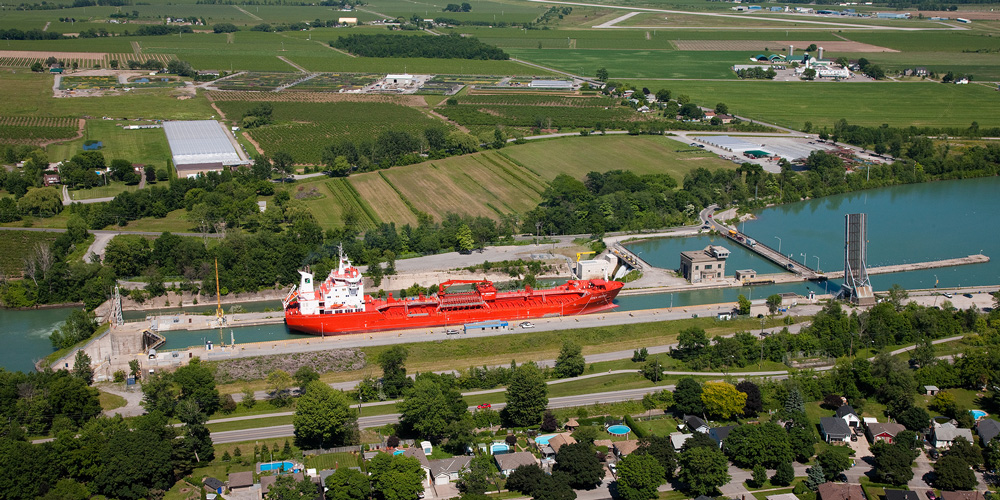Intent Of Implementing AIS In Seaway Waters
April 11, 2002
AUTOMATIC IDENTIFICATION SYSTEM (AIS) INTENT OF IMPLEMENTING AIS IN SEAWAY WATERS *** EFFECTIVE APRIL 1, 2003 ***
Mariners are notified that it is the Seaway entities’ intention to implement mandatory carriage of AIS in Seaway waters starting April 1, 2003. The Saint Lawrence Seaway Development Corporation plans to begin the proposed rule making process of these regulations and rules in June 2002.
All ships that require Pre-Clearance and have a 300 gross tonnage or greater, or have LOA over 20 meters, or carrying more than 50 passengers must be equipped with an AIS transponder meeting the IMO standards, to be accepted for transit in the St. Lawrence Seaway.
Dredges and floating plants and towing vessels over 8 meters in length will also be required for mandatory AIS carriage. For combined and multiple units (Tugs and Tows), only the lead unit has to be equipped with the AIS transponder.
Minimum Shipboard AIS Transponder Requirements
Vessels transponders shall meet International Maritime Organization (IMO) Resolution MSC.74(69), Annex 3, Recommendation on Performance Standards for an Universal Shipborne Automatic Identification Systems (AIS).
Shipboard AIS transponders, including portable pilot units, shall be compliant with ITU-R M.1371-1: 2000, “Technical Characteristics For A Universal Shipborne Automatic Identification System Using Time Division Multiple Access In The VHF Maritime Mobile Band”.
AIS transponders on vessels requiring pilot services also must be compliant with IEC 61993-2, “Maritime Navigation and Radio Communication Equipment and Systems – Automatic Identification System (AIS) – Part 2 Class A Shipborne Equipment of the Universal Automatic Identification System (AIS) – Operational and Performance Requirements, Methods of Test and Required Test Results” and ITU-R M.1371-1: 2000 standards.
Shipboard AIS transponders shall derive real-time vessel dynamic information, such as ship position, speed over ground (SOG) and course over ground (COG), using marine radiobeacon differential GPS (DGPS) corrections.






